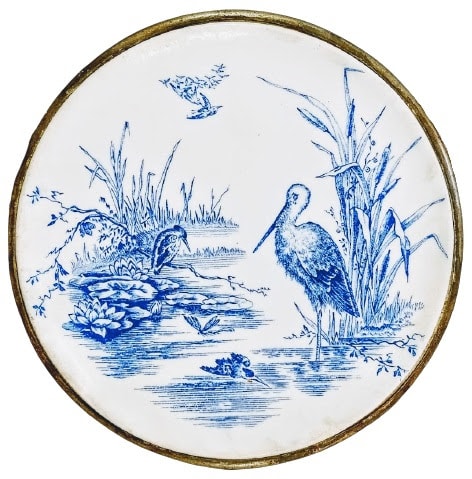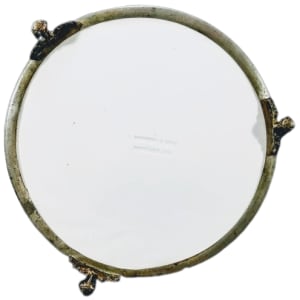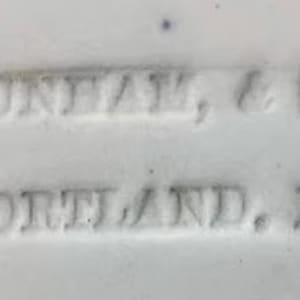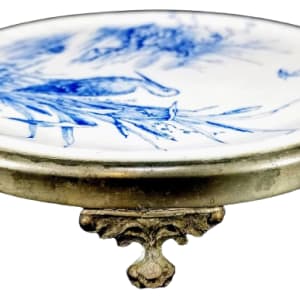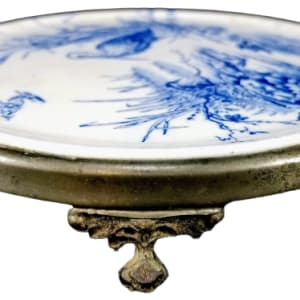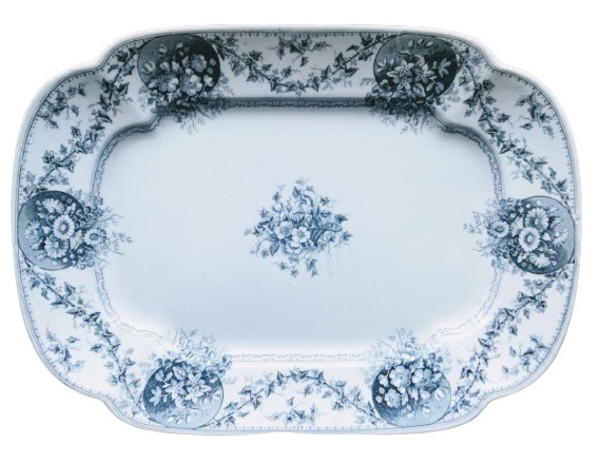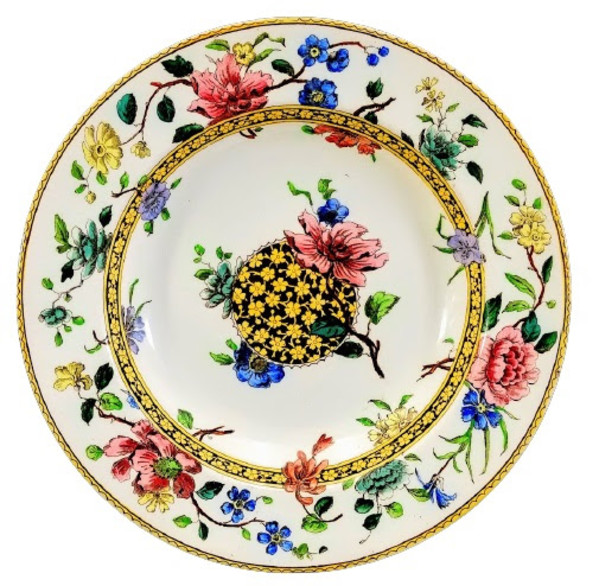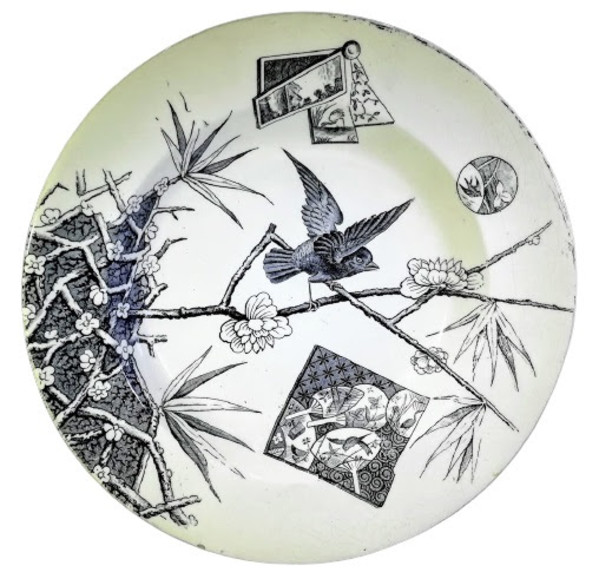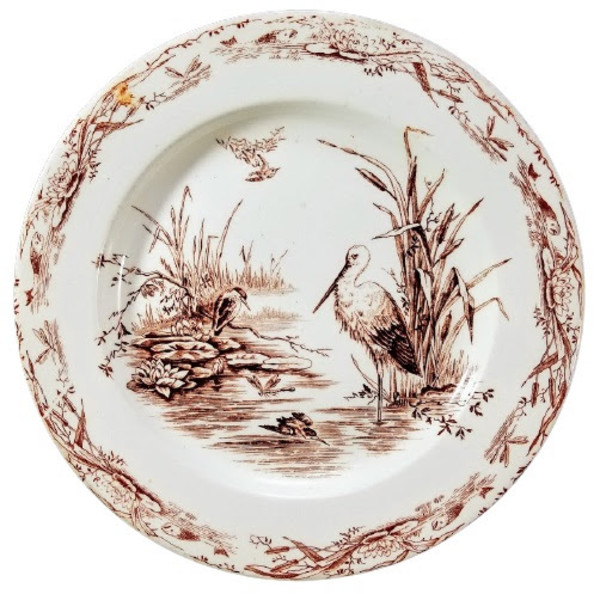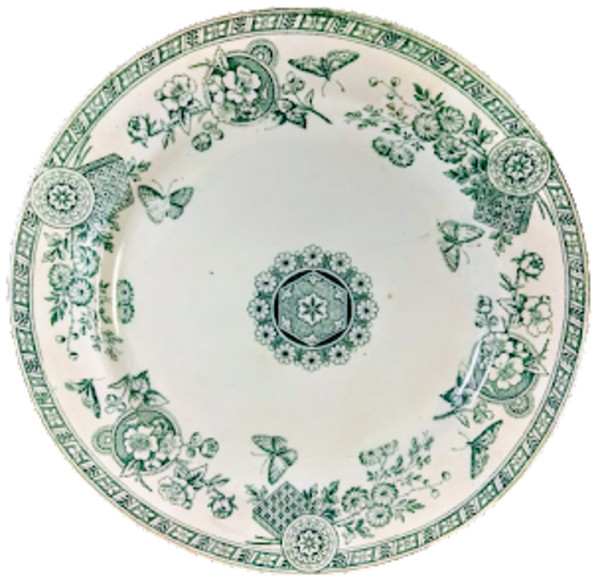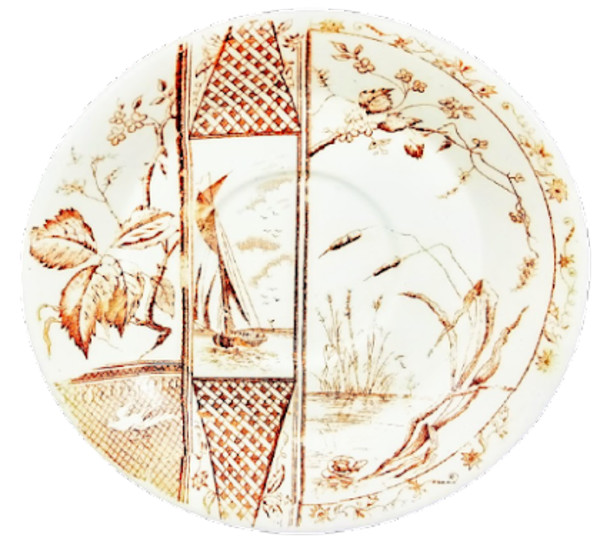- Thomas Elsmore & Son
- Osborne, Rd. 20 November 1879
- Earthenware
- 6 x 6 x 0.75 in (15.24 x 15.24 x 1.91 cm)
-
Not For Sale
Trivet, 6 x 6 x 0.75 inches. Blue transfer on earthenware and pewter frame. This pattern was registered on 20 November 1879 by Thomas Elsmore & Son under the name "Osborne." The pattern consists of a stork standing next to a large clump of cattails. Sitting on a branch near him is a kingfisher. Another kingfisher is seen flying on the lower part of the plate. A dragonfly can also be seen. The pond scene is complete with waterlilies (also seen in the border) and more cattails in the background.
Thomas Elsmore & Son was an earthenware manufacturer at the Clay Hill Pottery in Tunstall, Staffordshire. The original partnership was between Thomas Elsmore, Thomas Forster, and Richard Blackhurst, trading as Elsmore, Forster & Co. Blackhurst left the partnership in 1855 and Elsmore & Forster continued in business together. Around 1871, Forster left the business and Thomas Elsmore continued as Elsmore & Son.
The trivet was produced for the pewter-maker Rufus Dunham of Maine. Dunham studied pewter-making first in Boston, then Poughkeepsie New York. He settled in Westbrook, Maine from 1837 to 1861 and opened his own shop on Stevens Plains. In 1863 his son joined the business and they continued to produce pewter products under Dunham & Sons in Portland, Maine. Using steam power and a good-sized crew, he became the hardest, longest working and most prolific of all the pewter makers. His rise to wealth and prominence made him a person of note in the community. Dunham produced a variety of tea and coffee pots as well as water pitchers. The quality of his metal and design were excellent for the period.
- Subject Matter: Aesthetic (Animals)
- Collections: Aesthetic Transferware, Thomas Elsmore & Son
